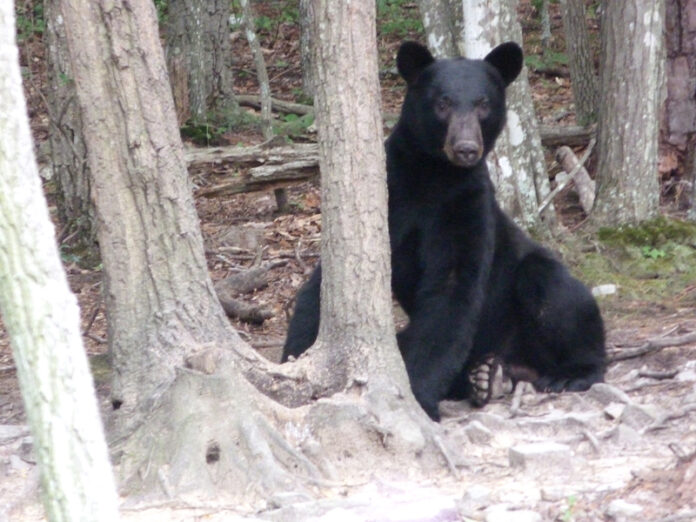It’s important to practice safe food storage when in bear country, whether you are picnicking in a remote area near the Appalachian Trail or taking a long hike through the George Washington and Jefferson National Forest.
“We want everyone to stay safe and be bear aware in the great outdoors,” said Joby Timm, Forest Supervisor. “Black bears have an exceptionally keen sense of smell. That’s why hikers should pack all food and any personal items that have a smell, like toothpaste and soap, in a bear-proof container so bears and other animals can’t detect the scents.”
Bears can learn to associate people with food, and they are tenacious in their pursuit of something to eat. Good food storage habits greatly reduce the chance of aggressive interactions between bears and hikers during daytime activities and when sleeping in the forest.
Leave No Trace partners with the USDA Forest Service to provide safety tips for outdoor recreation. Their video https://youtu.be/H0YDtPW6ntU shows how to pack a bear-resistant container, plus important safety tips for camping and cooking in bear country.
Bears are typically shy by nature and keep their distance. Hikers can avoid bear encounters by making noise, whistling or talking. These noises alert nearby bears, giving them a chance to move away and not feel threatened by humans who traverse their habitat.
While hiking, the best way to avoid a bear encounter is to be bear aware. Don’t hang out near a bear’s favorite food sources: berry patches, decaying logs swarming with insects and streams and rivers teeming with fish. Also stay alert. Don’t wear headphones and approach blind corners on the trail with caution.
Because black bears inhabit the Appalachian Trail corridor (also called the A.T.) and can smell food from long distances, the Forest Service has a food storage policy for all hikers within 1,000 feet of the trail — a distance the equivalent of three football fields. It was developed in coordination with the Appalachian Trail Conservancy, the Chattahoochee-Oconee National Forest, the Cherokee National Forest, the National Forests in North Carolina, and the George Washington and Jefferson National Forests. The order applies to the southern section of the A.T. that traverses Georgia, North Carolina, Tennessee and Virginia.
Food Storage Order: https://www.fs.usda.gov/Internet/FSE_DOCUMENTS/fseprd1101835.pdf


